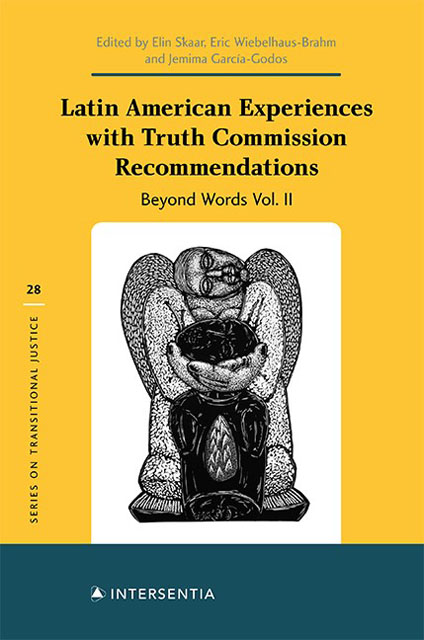Introduction
Published online by Cambridge University Press: 19 November 2022
Summary
During the past four decades, over 50 countries have established truth commissions to investigate patterns of gross human rights violations committed by repressive regimes and/or in the context of internal armed conflict. Depending upon what types of commissions one counts, more than a third of these commissions have been in Latin America, making it a leading region in this search for truth. Constructing shared memories of the past, many believe, is crucial to healing divided societies after violent conflict and repression. Apart from documenting abuses, most truth commissions make recommendations to governments. The assumption is that these recommendations, if implemented well, will prompt further measures to address past abuses – such as compensating surviving victims and their families for past suffering – and promote the types of reforms that may aid societies in the transition from violence to peace, democracy, and reconciliation.
A significant scholarly literature on truth commissions not with standing (Bakiner 2016; Chapman 2009; Ferrara 2014; Freeman 2006; Freeman and Hayner 2003; Hayner 1994, 2001; Mayer-Rieckh and Varney 2019; Wiebelhaus-Brahm 2010b), to date there is no systematic study of the formulation and implementation of truth commission recommendations. Hence, we know little about whether and under what conditions recommendations are implemented. This knowledge gap has been increasingly recognized (United Nations General Assembly, 2013). As the first United Nations Special Rapporteur on the promotion of truth, justice, reparation, and guarantees of non-recurrence, Pablo de Greiff, warned shortly after taking office in 2012, truThcommissions around the world “ face various challenges which can lead to the non-implementation of recommendations. Among these challenges are overly broad mandates, flawed choices of commissioners, and insufficient and unreliable funding streams “ (Office of the UN High Commissioner for Human Rights 2013).
The research project of which this volume forms part analyzes the recommendations of 13 Latin American truth commissions established by 11 countries since 1982 to gather more knowledge about their implementation. The overarching question we had when we embarked on this project was: How frequently are truth commission recommendations implemented? This led to two further questions related to variation in recommendations. first, we are interested in what factors influence the presence of recommendations and the form they take? Second, we explore to what extent do the type and complexity of recommendations influence the degree of implementation?
As the chapters in this volume aptly illustrate, there is enormous variety in the number of recommendations and level of detail presented in the 13 truThcommission reports.
- Type
- Chapter
- Information
- Publisher: IntersentiaPrint publication year: 2022

